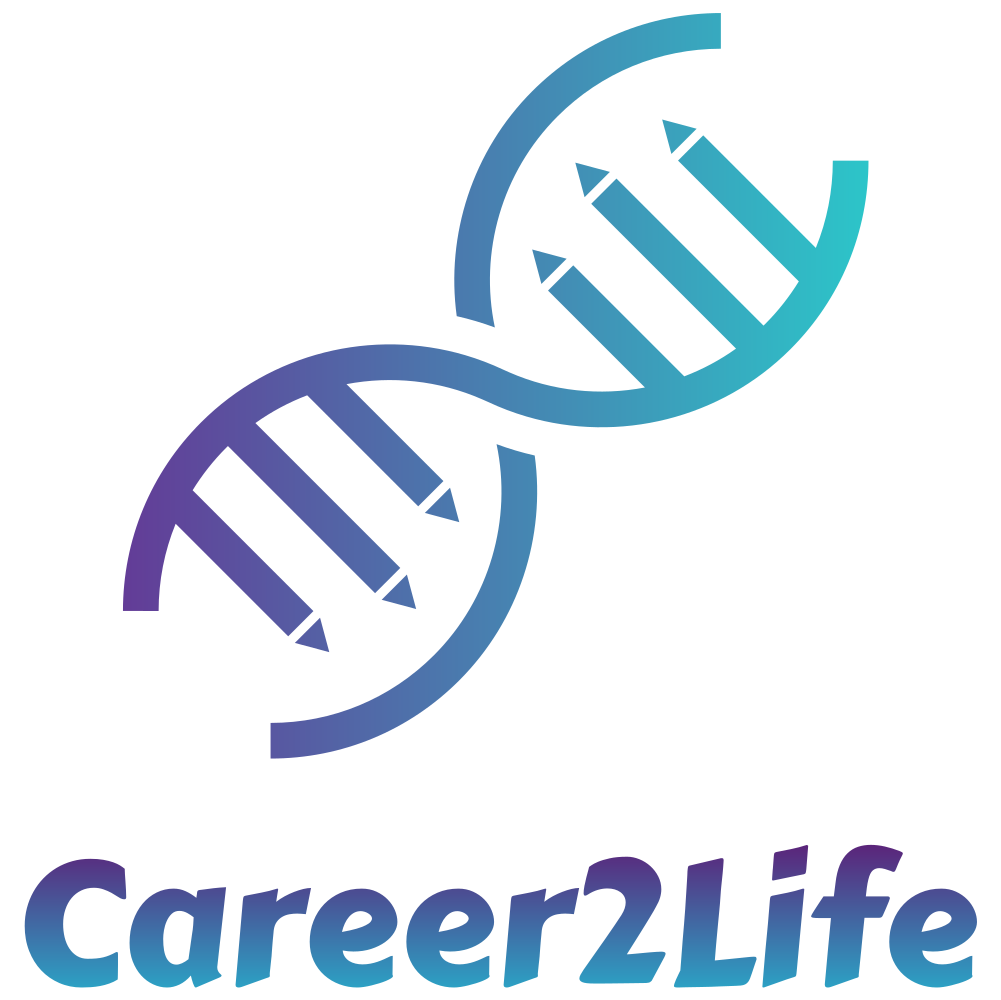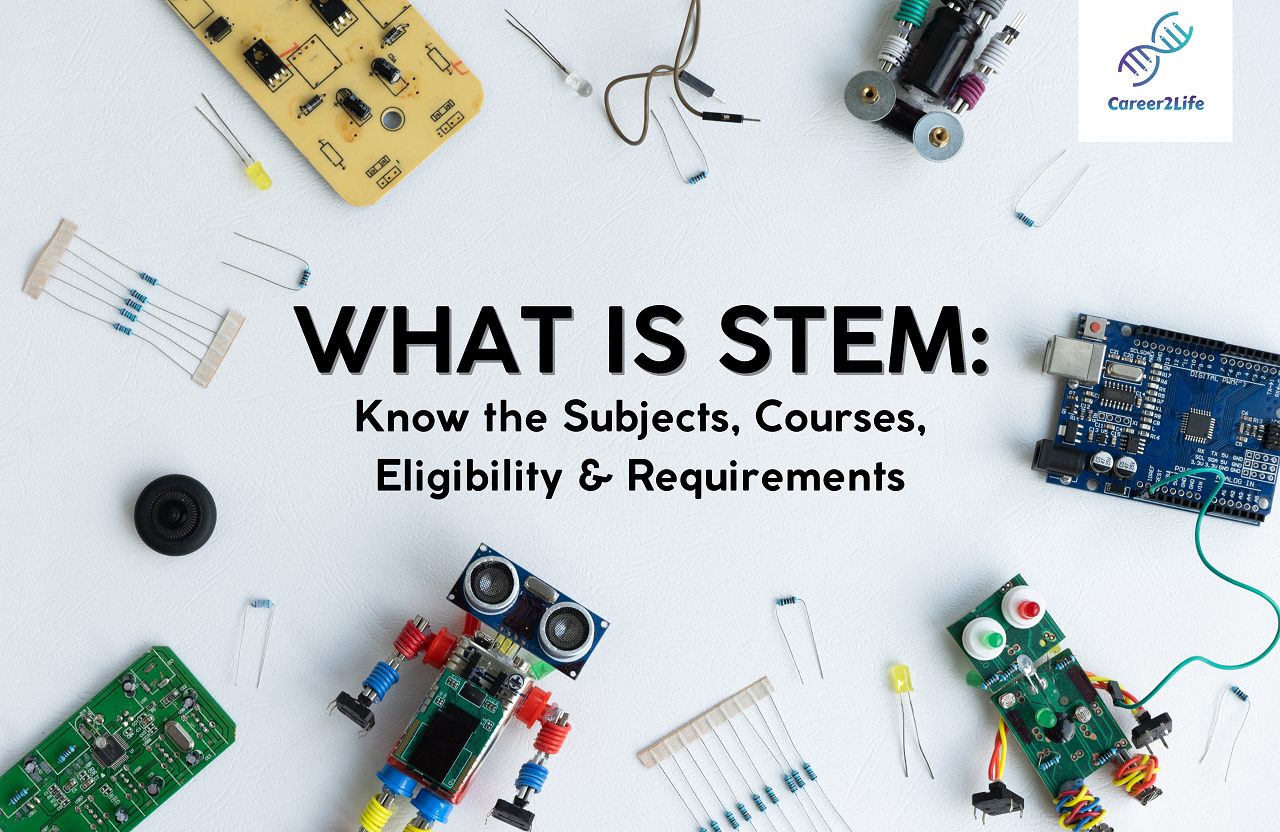What is STEM? Know the Subjects, Courses, Eligibility & Requirements
STEM is an abbreviation for Science, Engineering, Technology and Mathematics. It is an interdisciplinary approach to education that encourages critical thinking, problem-solving, and invention. STEM is essential in driving innovations and defining numerous businesses in today's quickly changing world. This blog comprehensively reviews STEM by delving into its disciplines, courses, eligibility criteria, and prerequisites. It will be a great resource whether you are a student seeking a STEM career or want to know What is STEM.
Subjects in STEM:
- Biology, chemistry, physics, and earth sciences are a few examples of the disciplines that come under the umbrella term "science." To advance knowledge and improve our comprehension of the world, scientists investigate everything from the smallest particles to the vastness of the universe.
- Computer science, information technology, electronics, telecommunications, and other fields are included in STEM Courses. Industry transformation is fueled by technology, affecting everything from software development to robots, telecommunications, and biomedical equipment. Technology also boosts productivity.
- Engineering is designing, constructing, and improving structures, machines, systems, and processes using mathematical and scientific concepts. It includes several subfields, including civil, mechanical, electrical, chemical, and aerospace engineering.
- The vocabulary and tools for analyzing and measuring patterns, relationships, and structures are provided by mathematics, which is a foundational discipline. Algebra, calculus, geometry, statistics, and other subjects are included in STEM Courses.
STEM Courses and Disciplines:
The list of STEM Courses is vast, however, here is some insights about STEM courses:
- Biotechnology is the study of using biological systems, processes, or organisms to create goods or technologies that enhance human life.
- Students who major in computer science are prepared for employment in software engineering, data science, artificial intelligence, and other fields by focusing on algorithms, programming, software development, computer systems, and data analysis.
- Aerospace engineering combines the principles of physics, mathematics, and engineering to design, build, and maintain aeroplanes, spacecraft, and associated systems.
- Environmental science investigates how people and the environment interact, focusing on problems like pollution, climate change, and sustainable resource management.
- Robotics integrates computer science, mechanical engineering, and electrical engineering to build intelligent machines that can carry out activities independently or in conjunction with humans.
- To design and create medical equipment, prosthetics, diagnostic instruments, and treatments, biomedical engineering combines engineering and medical science ideas.
- Data science is concerned with drawing conclusions from massive datasets using statistical analysis, machine learning, and visualization methods to guide decision-making and address challenging issues.
- Chemical engineering uses engineering, chemistry, and physics principles to create and improve the production of chemicals, drugs, fuels, and materials.
- Climate Engineers researches the creation and application of environmentally friendly energy sources like solar, wind, hydroelectric, and geothermal energy.
- Planning, designing, building, and maintaining infrastructure projects, including homes, bridges, highways, and water supply systems, are all part of civil engineering.
Eligibility for STEM Education:
The following section will provide insight on eligibility, which may vary according to the educational program, institution, and country.
The following section will provide insight on eligibility, which may vary according to the educational program, institution, and country.
Education Requirements: To pursue STEM Courses at the undergraduate level, you typically need a high school diploma or its equivalent. However, certain universities or programs may have different criteria or academic requirements.
Strong Foundation in Math and Science: STEM areas strongly rely on a solid mathematical and scientific foundation. Success in STEM education depends on having a strong grasp of and proficiency in disciplines like mathematics, physics, chemistry, and biology.
Prerequisite Courses: Students may need to pass prerequisite courses before being admitted to several STEM programs. These prerequisites may differ depending on the study, although they frequently include physics, chemistry, and math (for example, calculus).
Standardized assessments: These tests are part of the admissions process for many STEM Courses that demand scores from standardized tests. For undergraduate applications, tests like the SAT (Scholastic Assessment Test) or ACT (American College Testing) are frequently required in the USA, whereas the GRE (Graduate Record Examination) is commonly needed for graduate schools.
Exceptional Analytical and Problem-Solving Skills: STEM Courses emphasize problem-solving, analytical thinking, and critical thinking—success in STEM courses and programs benefits from having excellent skills in these areas.
Computer literacy: As technology plays a significant part in STEM education, it is advantageous to be proficient in fundamental computer skills and conversant with software applications related to STEM Courses (e.g., programming languages, data analysis tools).
Research and Extracurricular Activities: Taking part in extracurricular STEM-related research initiatives, internships, or other activities can improve your resume and show your passion for the discipline.
Requirements for STEM Careers:
- Requirements to Study STEM Courses for STEM employment, you need to obtain an appropriate bachelor's, master's, or doctoral degree.
- Develop proficiency in programming, mathematical modelling, laboratory procedures, or engineering principles particular to your chosen STEM field—Specialized Knowledge and Skills.
- To succeed in the quickly developing STEM disciplines, embrace lifelong learning to keep current on developments, attend workshops, and participate in research.
- Develop your capacity for critical thought to examine complex issues and develop creative solutions.
- Develop your research and practical skills so that you may carry out investigations, gather and analyze data, and come to intelligent conclusions.
- Foster productive collaborations, deliver findings, and communicate technical concepts to audiences using collaboration and communication skills.
Conclusion:
STEM Courses provide access to a variety of job prospects. You can pursue meaningful careers, contribute to innovation, and research international study possibilities in science, technology, engineering, and mathematics. If you have a solid foundation, are committed to lifelong learning, and have the support of study abroad Consultants like Career2Life, you can take full advantage of these prospects. Career2Life can offer valuable advice and support while you pursue a STEM career. We can help you realize your potential and succeed in your chosen STEM sector .

